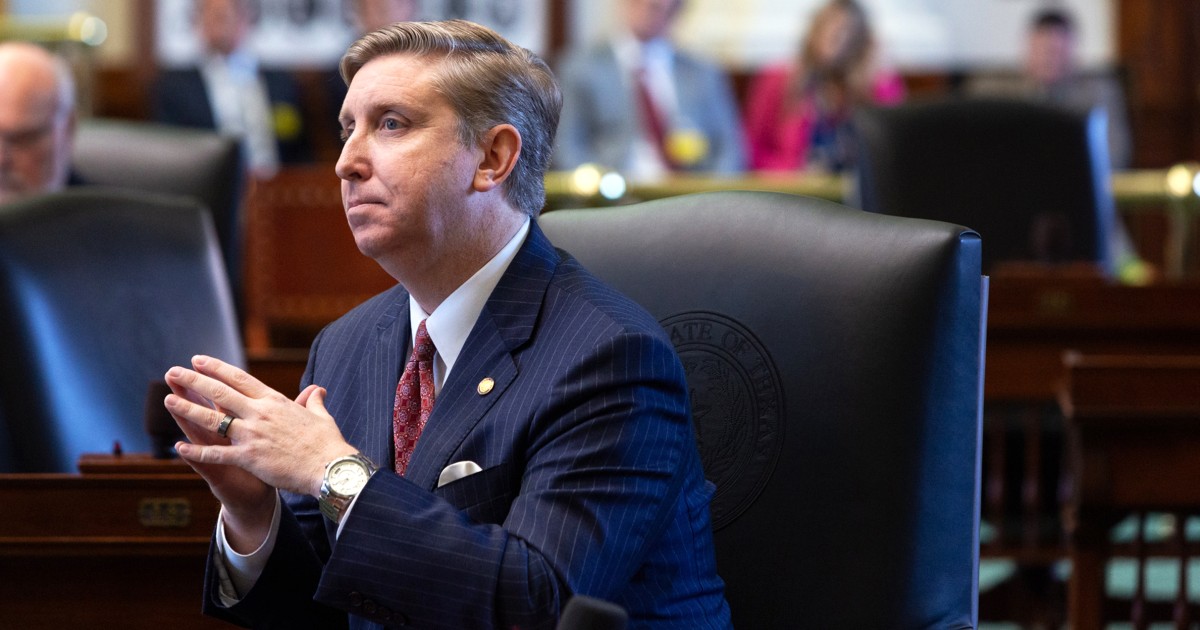The Controversy Surrounding Unclaimed Bodies in Medical Research
In recent months, the ethical implications of using unclaimed bodies for medical research have come under intense scrutiny, particularly following an investigation by NBC News. This investigation revealed that the University of North Texas Health Science Center had been obtaining and studying hundreds of human specimens without the consent of families. The fallout from these revelations has sparked outrage among lawmakers, families, and the public, leading to calls for significant changes in how unclaimed bodies are treated in medical research.
Legislative Response: A Call for Change
In response to the NBC News investigation, Texas State Senator Tan Parker has pledged to introduce legislation aimed at banning the use of unclaimed bodies for research unless explicit consent is provided by the deceased or their survivors. Parker, a Republican representing parts of Dallas and Tarrant counties, expressed his shock and disgust upon learning about the practices at the Health Science Center. He emphasized that human life is sacred and must be treated with respect, a sentiment that resonates deeply with many who have been affected by these practices.
Parker has previously sought to regulate the body broker industry, which operates largely without oversight. However, the recent revelations about the Health Science Center’s actions have galvanized him to take more immediate and decisive action. His proposed bill, set to be introduced in the upcoming legislative session, aims to ensure that families are involved in decisions regarding the use of their loved ones’ bodies for medical research.
The Health Science Center’s Admission and Immediate Changes
Following the public outcry, the University of North Texas Health Science Center suspended its body-donation program and terminated the officials responsible for its management. In a statement, university spokesperson Andy North acknowledged that the institution had "fallen short of the standards of respect, care, and professionalism" expected in handling human remains. This admission marks a significant shift in the university’s approach to body donation, as it seeks to restore trust with the community and the families affected.
Historical Context: The Use of Unclaimed Bodies
The practice of using unclaimed bodies for medical research is not new; it has been a part of medical education for decades. Historically, U.S. medical schools relied on unclaimed bodies to train future physicians and advance medical knowledge. While this practice remains legal in many states, including Texas, there has been a growing movement to reevaluate the ethics surrounding it. Some states and body-donation programs have ceased the practice altogether, reflecting a shift towards treating deceased individuals with the same dignity and respect afforded to living patients.
The Impact on Families
The implications of these practices have been particularly devastating for families who have lost loved ones. Many families were unaware that their relatives’ bodies had been used for research, leading to feelings of betrayal and anger. For instance, Brenda Cloud, whose brother Victor Honey was dissected and leased to medical companies after his death, expressed her outrage at the total disrespect shown to her brother and their family. Honey, a homeless Army veteran, had been searching for a dignified burial, only to find out that his remains had been used for research without his family’s knowledge.
Cloud’s experience is not unique. Many families have reported feeling traumatized by the lack of communication and respect shown by the institutions involved. The emotional toll of discovering that a loved one’s body was treated as a mere specimen can be profound, leaving families grappling with grief and anger.
Community and Government Reactions
The fallout from the NBC News investigation has prompted immediate reactions from local and state officials. Alisa Simmons, a member of the Tarrant County Commissioners Court, has vowed to push for new policies that ensure the ethical treatment of unclaimed bodies. Similarly, Dallas County officials have stated that they will no longer provide unclaimed bodies for research unless survivors explicitly consent.
These changes have been welcomed by some families, who see them as a step towards accountability and respect. However, many still feel that more needs to be done to prevent similar situations from occurring in the future. The U.S. Department of Veterans Affairs has also expressed sympathy for the families affected, emphasizing the need for dignified treatment of veterans and their remains.
Calls for Broader Reforms
The controversy surrounding the use of unclaimed bodies has sparked broader discussions about medical ethics and the treatment of deceased individuals. Prominent figures, including Rev. Al Sharpton, have labeled the situation a civil rights issue, calling for government intervention to protect the dignity of the deceased and their families. Medical experts and ethicists have echoed these sentiments, urging for federal changes to ensure that such practices are not allowed to continue.
Thomas Champney, an anatomy professor, expressed hope that Congress would take action to prevent similar abuses in the future. Meanwhile, bioethicist Eli Shupe sees an opportunity for Texas to set a new national standard for the ethical treatment of unclaimed bodies, potentially influencing practices in other states and medical institutions.
The Ongoing Struggle for Justice
As families continue to grapple with the trauma of discovering how their loved ones were treated, the push for reform remains strong. Louisa Harvey, whose fiancé Michael Coleman was also sent to the Health Science Center while she was actively searching for him, articulated the pain and confusion many families feel. While she acknowledges the positive changes that have emerged from the investigation, she also emphasizes that there is no justice for those who have already been affected.
The emotional scars left by these practices run deep, and for many families, the journey towards healing is just beginning. The commitment to reform and the promise of new legislation offer a glimmer of hope, but the road ahead remains fraught with challenges as communities seek to ensure that the dignity of the deceased is upheld and respected.
